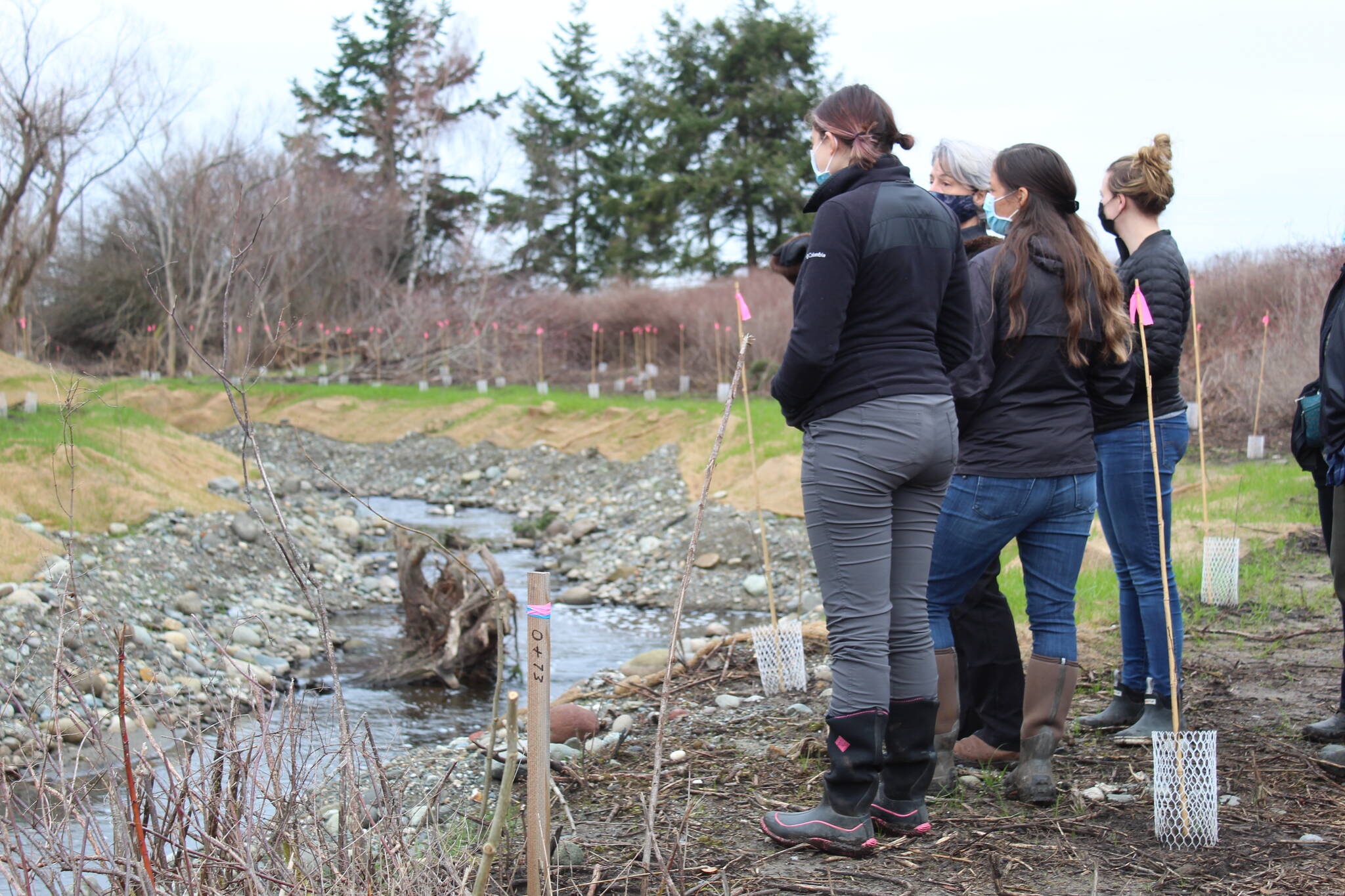A collaborative creek restoration project between the Navy and a Whidbey nonprofit came to an official close earlier this month with a small creekside ceremony, but the ongoing salmon restoration effort will continue for years to come.
Naval Air Station Whidbey Island and the Skagit River System Cooperative have been working together since September to turn a ditch on a Navy property on North Whidbey into a winding, freshwater creek to provide juvenile salmon with a place to acclimate to living in saltwater.
“Projects like this are really important for juvenile salmon. There’s not as much habitat available in the river deltas and along the shorelines as there once was,” said Eric Mickelson, the project coordinator from the cooperative. “They look for places like this where there is freshwater flowing into the salt marshes, where they can come in and they can acclimate and they can hide out from bigger fish that might want to eat them. Fish that do that, we find, have a better chance once they get out to the ocean of surviving.”
The creek is only the latest in a series of projects the Navy has undertaken in the last three decades to improve the parcel of land east of Oak Harbor and south of Crescent Harbor Road. In the early 1900s, residents built drains and channels in the area in an effort to make the land dry and farmable. The Navy developed an interest in restoring the land in the 1990s, after it took ownership of the area.
Since 2007, the Navy and the Skagit River System Cooperative have worked together to breach coastal berms and reintroduce tidal exchange into the system, creating a large salt marsh and allowing fish to access the area.
In monitoring the site, the Navy and the cooperative noticed that young salmon would stage at the top of the marsh, likely in an attempt to reach freshwater exchange from the original channelized creek that no longer had an entry point into the marsh. The creek restoration project, which began in September 2021, was implemented in direct response to the needs demonstrated by the fish.
John Phillips, the natural resources manager for the Navy, said the transition from the freshwater where salmon are spawned to the saltwater where they spend most of their adult lives is a difficult one. Young salmon need spaces with some freshwater input to gradually prepare themselves for life in the ocean.
The Navy and the cooperative created the new creek from a straight ditch that used to exist on the property. In building the creek, they had to add bends and sinuosity to the design to make the stream slow and constant enough to sustain the system.
Efforts to create healthy habitats for salmon have far-reaching environmental and cultural effects, according to Steve Edwards, chairperson of the Swinomish tribe.
“The importance of salmon to our people is monumental. It’s a part of our tradition. It’s a part of our culture. It’s always been a part of our diet for thousands of years,” he said at Wednesday’s ceremony. “We can’t thank you enough for the partnership, the love, bringing our communities together, building these relationships. That’s what we need.”
The creek project cost around $300,000, with funding coming from grants the cooperative received and the Navy.
“The Navy by design is not really a restoration or a scientific organization,” Phillips said. “But a healthy ecosystem provides a realistic training environment for the sailors who do train out in Crescent Harbor.”
Phillips said the Navy will continue to monitor the salmon and other fish in the marsh area to evaluate the impact of the creek project.




